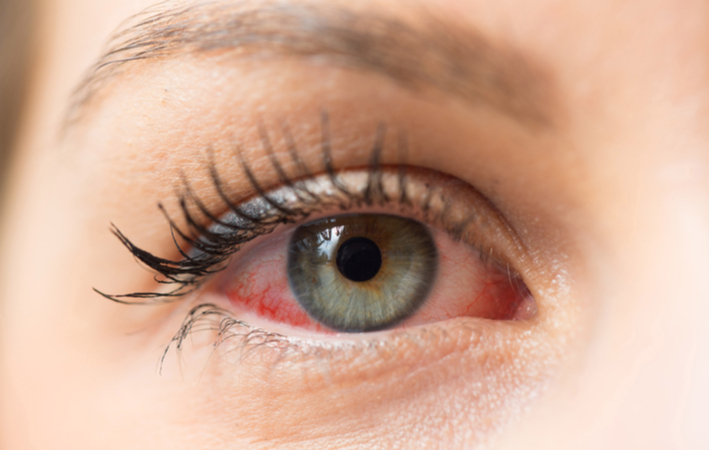Impotence is a very common sexual problem amongst men and is usually characterized by the inability to attain ejaculation or the consistent inability to hold an erection long enough for sex or the inability to reach orgasm. Impotence can be caused by a variety of factors and can affect all age groups equally. Impotence has been labeled as a major sexual health problem in men because of its psychological and physiological implications. Impotence can prevent men from fully enjoying their sexuality. It significantly reduces the pleasure derived from sex and can severely affect one’s self-image.
Impotence occurs when there is an obstruction, either external or internal, of the penis’s urinary orifice or urethra, which interferes with a man’s ability to have an erection and maintain one long enough to complete sexual intercourse. This condition is usually referred to as erectile dysfunction, but the term can be applied to a wide range of conditions including inadequate vasodilatation. Erectile dysfunction can occur in response to a temporary or permanent physical condition or it can result from a more serious underlying pathology. Impotence is classified according to the method of action for its occurrence. Urinary tract obstruction, for example, can cause urine to flow through the urethra to be reduced resulting in insufficient blood supply to the penis and the patient’s inability to obtain or maintain an erection. Urinary tract infections, on the other hand, can lead to inflammation of the prostate or bladder, blockage of the urethra by enlarged prostates, and even blockage of the fallopian tubes that can lead to infertility.
Depression and stress have also been linked to impotence. The presence of high levels of stress can adversely affect the immune system, lower blood sugar levels, increase cortisol levels, and decrease testosterone levels. As males are exposed to more environmental factors such as excessive noise, altered eating and drinking habits, increased stress, and exposure to different types of chemicals and substances, they have been found to display higher levels of depression. In addition, men who experience major changes in their life such as separation or a death of a spouse will also display higher levels of stress and depression. These causes of impotence may be difficult to treat as only a partial response by the body and as these life changes do not usually have long-term implications on the individual.
Other causes of impotence are diseases that affect the urinary tract and the prostate gland. Chronic pyelonephritis, an infection of the urinary tract, can lead to impotence as symptoms include incontinence and painful urination. Urinary tract infections can also lead to complications such as impotence, as the condition can cause urine to pass with difficulty and may impair the patient’s ability to maintain an erection. Some of these infections can be treated by antibiotic therapy; others require surgery. Prostate tumors can also cause erectile dysfunction, as the condition is related to the prostate gland, which can be removed in some cases if the tumor is malignant. Tumors that occur elsewhere in the body can be treated via radiation, chemotherapy or hormonal therapy.
Impotence is a medical condition that requires treatment if it interferes with your ability to get or keep an erection. There are many treatments available for impotence, including medications that you may be able to buy over the counter. Some of these medications can improve your ability to have an erection, as well as reduce the amount of stress that you feel in your sex life. There are also many devices that may help you overcome impotence. These include penis pumps that can be used at home to increase blood flow to the penis, as well as other devices that use electrical currents to help achieve an erection.
Impotence can be a very embarrassing condition and may limit your enjoyment of sex, as well as your interaction with others. If you have any questions about impotence or erectile dysfunction, a men’s clinic such as Premier Men’s Medical Center is often the best source of information. They can refer you to a psychiatrist, who will be able to help you deal with the emotional and physical effects of impotence. Impotence can be treated, but it is important to understand that men may need to try several different treatments before they find relief from their condition. In some cases, physical examination may be required to rule out other conditions that can be causing erectile dysfunction.
Impotence is a very common issue among male adults and is typically characterized by the constant inability to maintain an erection enough to perform on-the-job, sufficient enough to engage in sexual intercourse, or even just the inability to reach orgasm or achieve orgasm at all. Impotence can range in severity. It may involve an inability to attain ejaculation or an inconsistent ability to reach an erection, to varying degrees. It is important that any male suffering from impotence to be treated adequately. However, it’s also very important to understand the underlying causes of impotence so you can prevent further complications from occurring and even treat the current episode.
Impotence, as noted above, can come in many forms, ranging from not being able to get erect enough to the inability to get erect at all. In order to properly treat impotence, you must know the causes behind the condition so you can properly treat it. Impotence can be caused by many different health issues. Some of the most common health issues that cause impotence are high blood pressure, diabetes, stroke, neurological disorders such as Parkinson’s, heart disease, liver disease, and depression, poor health due to low self-esteem, and even more serious health issues such as cancer and HIV/AIDS.
If you are suffering from impotence, one of the first things you should do is ensure that you are getting plenty of vegetables, fruits, and a healthy diet. A healthy diet will give your body all the necessary nutrients it needs to stay healthy and strong. A healthy diet will also give your body the right amount of vitamins, minerals, and certain other dietary fiber that it needs. The most important thing is that you have a healthy diet, since what you eat can affect your libido as well as your overall health. If you are suffering from impotence, you should make a special effort to eat a diet that is rich in vegetables, fruits, and wholesome grains, which will improve your health, as well as give you the energy and stamina you need to enjoy sex.
If you find that you are suffering from impotence and don’t know where to turn for treatment, your next step should be to see your doctor. Impotence can be caused by several factors and if you don’t know what is causing your problem, you may not know how to treat it. Your doctor will be able to help you understand the causes of impotence and determine the best treatments available. If you suspect that your impotence may be related to a medical condition, your doctor will be able to refer you to a specialist, who will be able to assist you with the proper treatment.
Impotence can have many causes and it is important that you identify those causes so you can seek the necessary treatment. Impotence can be caused by physical conditions such as hormonal imbalances, vitamin or mineral deficiencies, high blood pressure, heart disease, enlarged prostate, diabetes, psychological issues, and liver problems. In some cases, impotence may be related to a neurological disorder such as stroke, multiple sclerosis, meningitis, head injury, carotid artery narrowing, and more. If you have any of these disorders, your doctor will be able to help you treat your impotence and prevent further complications. It is very important that you seek treatment from a reputable health care professional such as a psychologist or registered dietitian, as alternative treatments, such as hypnosis, meditation, acupuncture, homeopathy, and herbs can have serious side effects and should be avoided if possible.
Impotence can have many devastating side effects on both the male and the female that experience it. Women who experience impotence are often unable to achieve or maintain an erection necessary to enjoy sexual intercourse. In addition, impotence can make a man feel less confident about his own sexuality and sex life in general. Impotence can also significantly reduce a man’s satisfaction with sex, as he will have difficulty achieving and maintaining an erection. If you are suffering from impotence, you should take the time to speak with your doctor about possible causes, as well as other treatment options available to you.










Comments